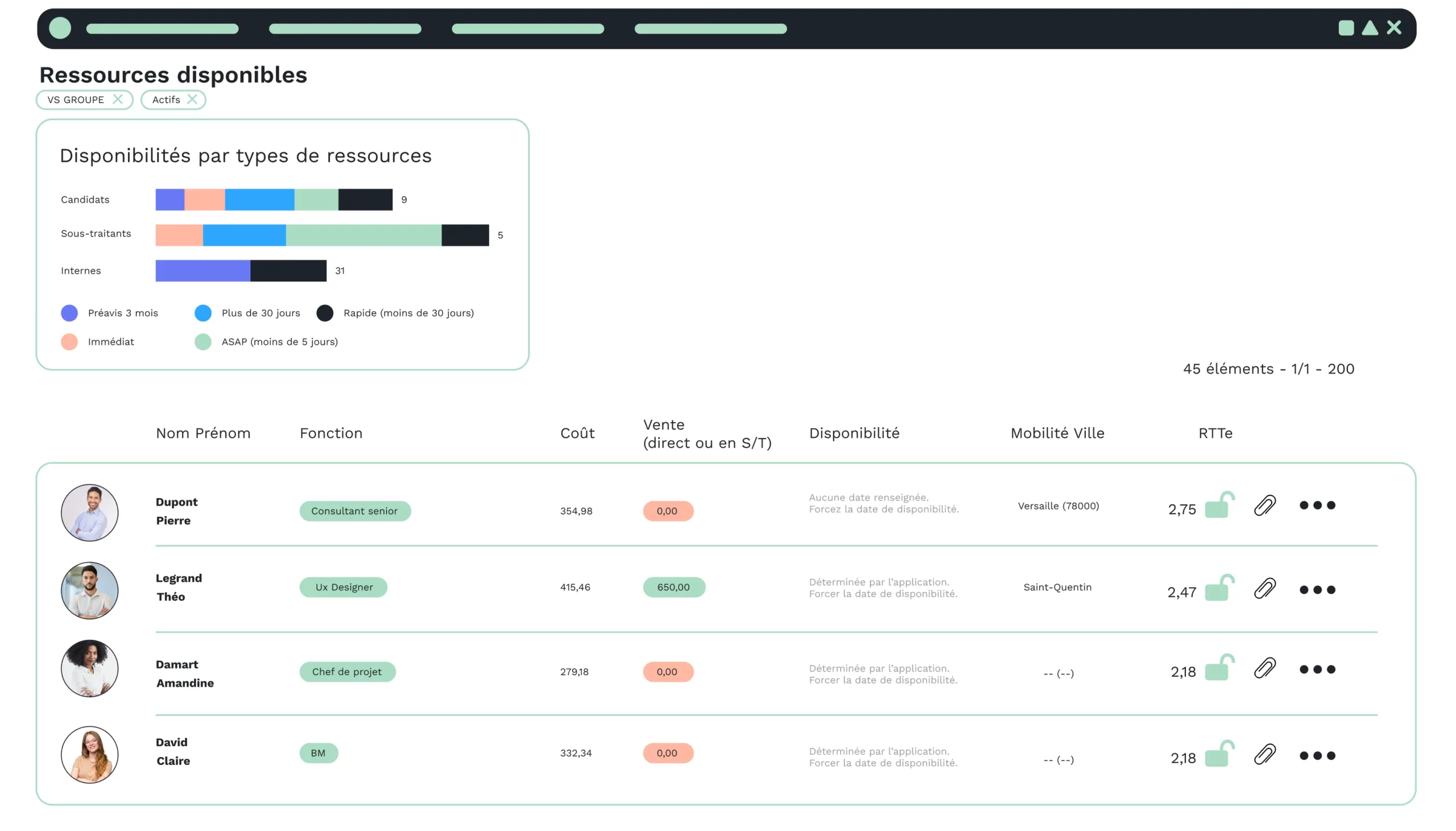What do you think is the biggest obstacle to an ERP implementation project?
Many IT services companies face this challenge when implementing an ERP system, yet many are not sufficiently prepared for it. So, did you find it?
Let’s start with a definition of change management and a few figures before putting a word to this “brake”.
What is change management?
Change management is the implementation of an action plan aimed at changing behavior in order to adapt to a new situation. For a company, this could be the integration of a new tool, a new process or a new way of working. In short, anything that forces employees to change their habits.
The challenges of change management
According to a study by Panorama Consulting*, the greatest difficulties encountered in ERP implementation projects are process changes for 79.3% of companies surveyed, followed by organizational changes for 65.5% of companies (see graph below**).
These figures show that the biggest difficulty, the biggest obstacle, for companies in this type of project is behavior.
This is why implementing a change management approach within your company is so important:
- Challenge No. 1: getting employees to accept the new project
- Challenge no. 2: anticipate future obstacles (reluctant employees, training, unsuitable processes, etc.).
- Issue no. 3: Involve the employees concerned in the project
- Issue no. 4: provide human and financial resources to support the transition
Change management: how to set up a good action plan?
Communicating again and again with employees about the new tool and its benefits for the company’s business is a good thing, but it’s not enough.
Why? Implementing such a tool implies many changes in your employees’ environment. They’ll have to step out of their comfort zone, and this will translate into stress, fear, discomfort and, unconsciously, rejection of the project.
Indeed, they will have the impression of losing productivity, that their skills are no longer useful for some. For example, an employee with a perfect command of Excel might feel devalued by an ERP system that no longer requires them to create tables and formulas.
That’s why it’s so important to put a good action plan in place to prepare for the transition:
Conduct an employee survey
This survey will provide you with a wealth of data on which to base your action plan:
- This will enable you to see how your employees perceive the project, and thus identify future obstacles.
- Identify employees who express reluctance to the project, and address their concerns.
- Impacted skills.
- Professions affected.
- …
Workshops
Through the questionnaire, you identified several obstacles to the new organization. Based on this data, you’ll be able to set up workshops. Several benefits:
- Involves employees in the project.
- Identify obstacles you hadn’t thought of (unsuitable processes, etc.).
- Motivate employees.
- Inform employees about the new software in a more entertaining way.
- Exchanging ideas with employees.
- Find solutions collaboratively.
Providing the necessary resources for change
You’ve identified the obstacles in the previous stages. Now, to support change, you need to provide your employees with the necessary resources (human and financial). It can be :
- A project manager to answer questions from employees and management.
- Training to bring employees who need it up to speed.
- Additional manpower to support the transition phase from the old tool to the new one.
In an ERP system, for example, this could be for the data recovery phase.
This list will depend on the obstacles you identified earlier. Note, however, that failing to make the necessary resources available is an additional obstacle that will slow down the project and therefore cost you money.
Communicating with employees
Communication is an important step in successful change. This reassures employees, keeps them informed of project progress, and avoids hearsay.
You also need to make sure that the message is consistent, especially within the project’s management team.
4 tips for successful change management
4 tips that sum up the essentials for successful change management :
Tip 1: Talk to your employees
Tip 2: Involve your employees
Tip 3: Support your employees
Tip 4: Set an example
* Panaroma Consulting Group study: “The 2020 ERP report”.
**source: “The 2020 ERP report” – Panaroma consulting group
Read also:







